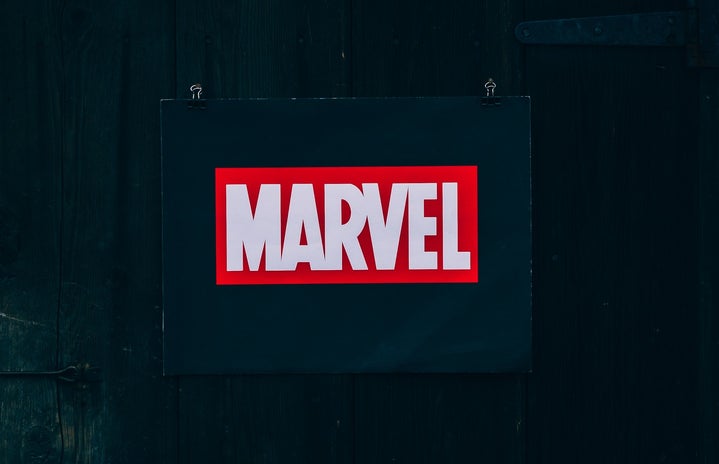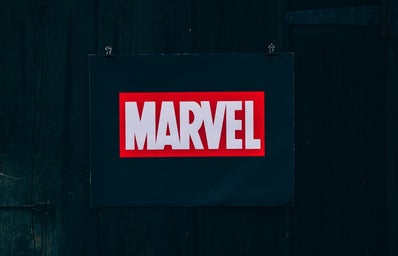Warning: This article may contain spoilers.
Black Panther: Wakanda Forever (2022) is a storytelling feat executed with fantastic performances from its diverse cast. After the tragic passing of Chadwick Boseman (T’Challa) in 2020, the film director Ryan Coogler decided not to recast his role out of respect. The sequel to the highly acclaimed Black Panther (2018) delicately balances a tale of grief and an origin story. Letitia Wright (Shuri) takes up the mantle of the Black Panther in this highly-anticipated film. Even as Wright makes the role of the Black Panther her own, Boseman’s presence throughout the film is tangible. Starring opposite Wright is Tenoch Huerta (Namor), whose grief and role as a leader sets him up as the perfect foil to Wright’s fledging superhero.
Enemies to Lovers?
Wright and Huerta stunned audiences with their raw performances of complex characters that tugged at the audience’s heartstrings. Shuri and Namor’s tales of personal grief and anger at the dangers posed by colonization created an interesting dynamic between the two foes. The scenes shared between the two were some of the most poignant in the film, and the audience almost mirrored their emotions. The two actors shared an onscreen chemistry that had fans on Twitter and everywhere questioning the nature of their relationship. The general consensus from fans of the Coogler film is there was definitely a romantic “vibe” between Shuri and Namor. Fan theories about the meaning of the bracelet given to Shuri by Namor and ship fan art immediately rose upon the film’s release. The cast and writers deny any romantic undertones despite what the fans want.
The possibility of a future relationship between Shuri and Namor isn’t impossible, though, since the writers admitted they initially considered a romantic subplot between the two. The film editor Michael P. Shawver told Newsweek that these plots were cut for time and the sake of the story. Even if their dynamic would make for an interesting romantic relationship, the decision to focus on their shared trauma is what pulled the film together. Namor may be the villain of Shuri’s story, but he is far from an evil or unsympathetic character.
The Real Enemy Was the Colonizers
Black Panther (2018) was a celebration of the African diaspora and offered a view of African culture untouched by colonization. In Black Panther: Wakanda Forever (2022), Indigenous people get representation on the big screen when Coogler brings the underwater nation of Talokan to life. The world of Talokan is influenced by pre-Columbian Mesoamerica and the Aztec people. Talokan and Wakanda are alike in that they have seen the destruction caused by imperialism and would do anything to prevent that from happening to their beloved civilizations. Shuri and Namor both represent the struggle between doing what’s right for yourself or what’s good for your people. When Shuri explores Talokan and sees its people, she realizes they are no different from Wakanda. Shuri and Namor share an intimate connection, but it is one of the kindred souls and “shared cultural trauma”, not romance.
“They’re trying to lead and be a leader of their nations with all this pain, carrying around this heavy heart.”
Michael P. Shawver, Newsweek
Unity is the Way FORWARD
The people of Wakanda and Talokan share a deep reverence for their ancestors, preserving their traditions through art and oral storytelling. Queen Ramonda reminds a grieving Shuri that our loved ones do not leave us when they die. This includes our ancestors — the people that lived and fought for us to be here today. This principle of Sankofa means by looking to the past and our ancestors we can make positive progress forward. The people of Talokan went into the sea to protect their nation from the threat of colonialism in the 16th century. This act of bravery and love has created a loyal and united nation that treasures its history.
In a movie about the impact of imperialism and the exploitation of BIPOC, the inter-minority conflict might have been painful to watch. Yet it is a reality we should confront. The problems that affect minorities are not isolated; in fact, there is much overlap. The similar history of violence against BIPOC is fundamental to the systematic obstacles faced by them today. Instead of fighting each other, we need to confront the common enemy together, which is Western imperialism.
Chicago’s Black Panther
Real-life Black Panther Fred Hampton had a similar ideology about inter-minority unity. In 1969 he organized the Rainbow Coalition, which consisted of political parties based in Chicago. The Rainbow Coalition united many groups with different ideologies like the Chicanos, Native Americans, Chinese, etc. Chairman Hampton persuaded these groups to work together by appealing to common issues like poverty, poor housing, and racism. The Rainbow Coalition staged demonstrations for their common causes and worked to end the criminal activity in their communities. Hampton tried to use the power of voter turnout and community to create an anti-racist and anti-class society. By uniting all these groups, inter-minority conflict was reduced, which was a threat to the American government. Part of the government’s fraught history with racial violence and undermining civil rights movements was the FBI’s Counter Intelligence Program (COINTELPRO). COINTELPRO was a series of illegal and covert projects that aimed to dismantle American political groups and movements, including the Rainbow Coalition. The government uses patriotism as an excuse to attack minorities under the guise of protecting national interests.
Looking Forward
Even if there will be obstacles, minorities have come together before to face adversity and it can happen again. The journey of Shuri and Namor was fraught with conflict but, in the end, they had a vision for their people. They knew that having each other as allies would be more beneficial than having each other as enemies. Black Panther: Wakanda Forever (2022) represents different cultures, skin colors, and inter-group teamwork. When audiences leave the theater after finishing the film, they will hopefully share the vision of unity.


